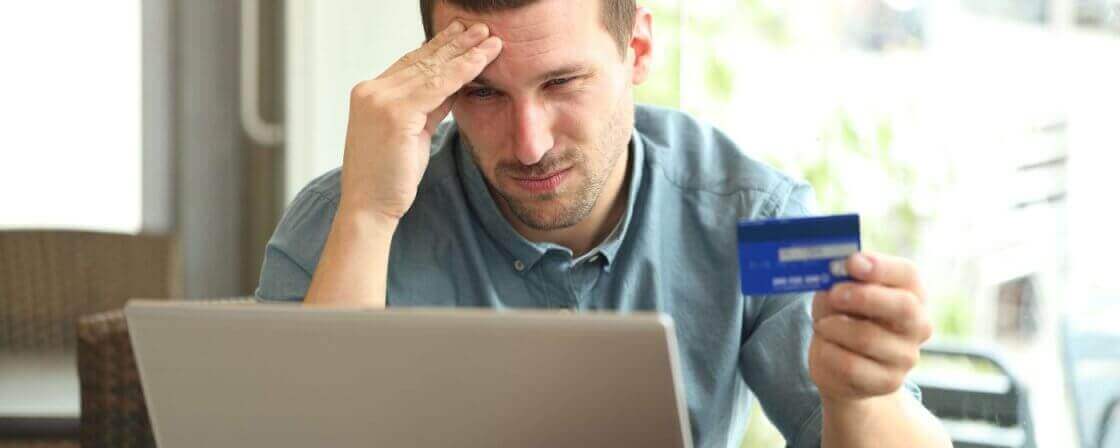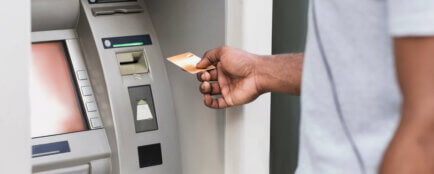Error in a bank transaction
To err is human and mistakes happen in any field, not excluding bank transfers. What to do if your intended banking transaction turns out differently than you planned?
The error is on my side
This is unfortunately more often the case. Tired, you go to pay invoices and bills in the evening, misspell your account number or bank number, and the money goes to a completely different account than you intended. There can be several solutions. If you’re a child of luck, then you chose an account number that doesn’t exist when you clicked over and the payment doesn’t go through at all. The money will then be returned to you within two to three working days at the latest. Fortunately, this is a fairly common occurrence as the account numbers are deliberately different.
If the money did go out, we recommend contacting your bank, who will advise you on how to proceed and help you get your money back. You will be given a form to complete to request a refund of the money you have received. If the money was sent to a customer of the same bank, the bank may notify the customer of the incorrect transaction (or contact the recipient’s bank). But one thing is certain, the money is in the possession of a stranger at that moment and the bank cannot arbitrarily withdraw it. Of course, the person in question must not keep the money, as this would be unjust enrichment, but they should return the money themselves, and this may not always be easy.
If the money does not arrive within four weeks of your request to the bank, contact the bank again to ask for the recipient’s identification details. Again, you can fill in the request with your own bank, which will then pass it on. The counterparty bank must comply with your request and will give you the recipient’s contact details, namely name, date of birth and permanent address. You can then contact him again, this time directly.
If even this route is not effective, a writ of summons or an action for unjust enrichment may be the last resort.
If the error only relates to an incorrectly entered variable symbol, then there is no need to return the payment, but to contact the recipient’s accountant who will locate the payment and pair it correctly.
Alternatively, if you have not made a payment with an immediate due date, but the due date is set for one of the following days, then you can usually still cancel it in e-banking.
The fault lies with the bank
Although these are rather exceptions, a technical fault can also occur on the bank’s side, due to which the money arrives somewhere else than it should, or is not sent at all, even though it should be. Sometimes your bank may also block your payments unjustifiably.
If you are not sure that the bank has carried out the transaction correctly, your bank should confirm that the transaction has not suffered from any fault or error. If you have suffered a loss as a result of your bank’s actions, you may be able to claim compensation. If it is clear that there has been a mistake on the part of the bank, banks are usually accommodating and will offer you compensation. However, if the bank has no solution, it is advisable to urge them to take action by issuing a pre-action notice.
Are you solving a similar problem?
Does anyone owe you money?
We can help you get what’s owed to you with a pre-action notice. In our experience, a pre-suit notice is the most effective and least expensive way to protect your rights. It can be done without the need to file a lawsuit, pay court fees and risk paying the other side’s litigation costs.
I want legal advice
- When you order, you know what you will get and how much it will cost.
- We handle everything online or in person at one of our 6 offices.
- We handle 8 out of 10 requests within 2 working days.
- We have specialists for every field of law.
I got an unexpected payment
This mistake is much more joyful. Ten grand shows up in your account that you didn’t quite count on? Before you head out to buy a new handbag or a new PlayStation, take a look at the origin of the payment. If the sender is someone you know (employer, business partner, family member), it’s best to ask what the payment is for. You may have just forgotten about an old debt, credit note, bonus or something similar and the money is rightfully yours. If this is the case, then feel free to head to the store.
Of course, you must not keep any payments that you are not entitled to, as this would again be unjust enrichment or even the crime of concealment. It is therefore easiest to return them to the same account number from which they came.
How can I avoid entering the wrong payment?
- The first piece of advice is obvious, but probably won’t come as a surprise to you: be careful when entering payments. Don’t pay debts when you’re tired or have had a drink in the evening. Double-check the number you’ve entered.
- Save the account numbers you repeatedly send payments to and use the templates provided instead of punching in the number again each time.
- Learn how to use QR code payments. Many invoices come with a pre-made QR code that you just scan with your mobile phone where you have mobile banking open and the correct account number, variable and constant symbols are automatically loaded. So you can’t get it wrong.
- Payment transactions will become a bit easier next year, when selected Czech banks will prepare a new option called “payment on contact“. It will be made available to customers of participating banks who sign up for the service through their bank and swap their phone number with their account number. Instead of a bank account number, knowing the recipient’s mobile phone number will be enough to send money. According to representatives of the banks involved, this will significantly reduce the error rate in entering payments. In time, it will be possible to extend the system to include other matching options, such as via e-mail addresses.
Tip for article
Tip: Don’t confuse “payments per contact” with so-called “bank identity“. Bank Identity is a service that is already available now and, if you use it, will make it easier to communicate with the authorities and some private entities (energy providers, telecom operators). You don’t have to remember dozens of login details or go to prove yourself in person. With your bank login details, you can verify your identity remotely when communicating with the authorities or any company.
I’m a victim of bank fraud
A mistake in entering your account number may seem trivial compared to bank fraud. Experts say the number of such scams is soaring and fraudsters are devising ever more sophisticated ways to extort money from victims. What may appear to be communication with your own bank may actually be a subtle way in which a fraudster is luring card or account passwords out of you.
If you are a victim of fraud, then the first place to consult is an attorney. He or she will then prepare and file a criminal complaint with the prosecutor’s office. On the basis of this, the police will initiate criminal proceedings in which you, as a victim of fraud, are also involved. This position gives you a number of rights (to consult the file, to propose additional evidence, to attend the main hearing, etc.).
It is also a very important right to ask the court to order the defendant to compensate the victim in money for the damage caused by the crime. This is done in the so-called adhesion proceedings. However, this is actually part of the main trial.
As an injured party, you can also have a lawyer represent you, which is highly recommended in these cases, as this will not curtail your rights and will help you to obtain a remedy.
If, even after consulting with a lawyer, it seems obvious and demonstrable that fraud has been committed, the aforementioned route of recovery may therefore be recommended instead of initiating civil proceedings, in which you have to show much more activity and effort. And also pay a court fee. However, it may be that the court proceedings end in acquittal or otherwise and the judge will still refer the victim to civil proceedings to recover compensation. Similarly, the judge may refer the victim to civil proceedings if, for example, further detailed evidence is required which is not necessary for the purposes of the criminal proceedings.
If you have been tricked out of money that you have sent to someone else’s account and you want to find out the identity of the account holder, then the official solution is through the Czech Police (or the court), who have the right to demand the identity of the account holder from the bank if they suspect a crime has been committed. Sometimes the name of the account holder may appear in the transaction history, but it is not advisable to proceed on your own in such a case.




